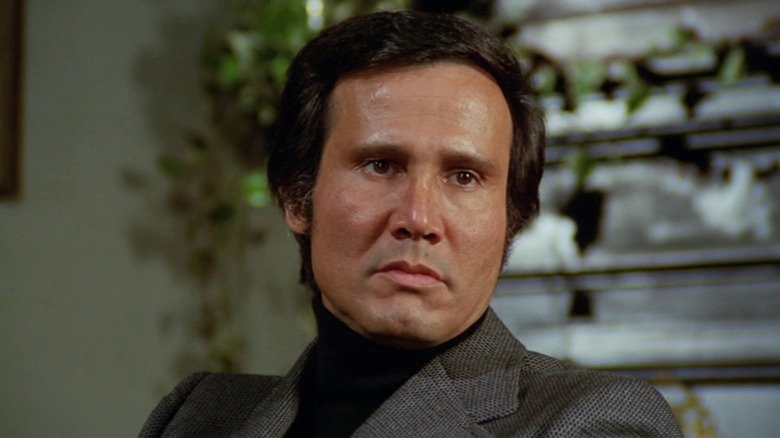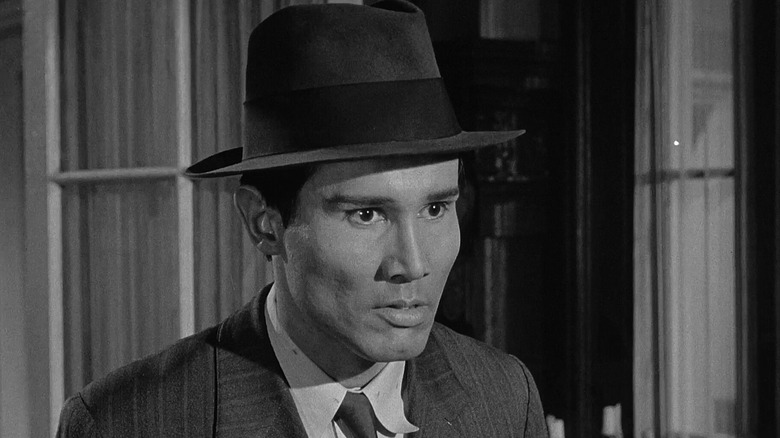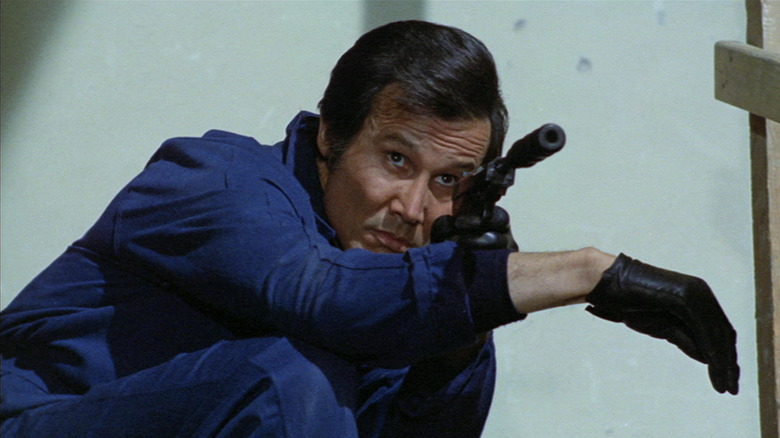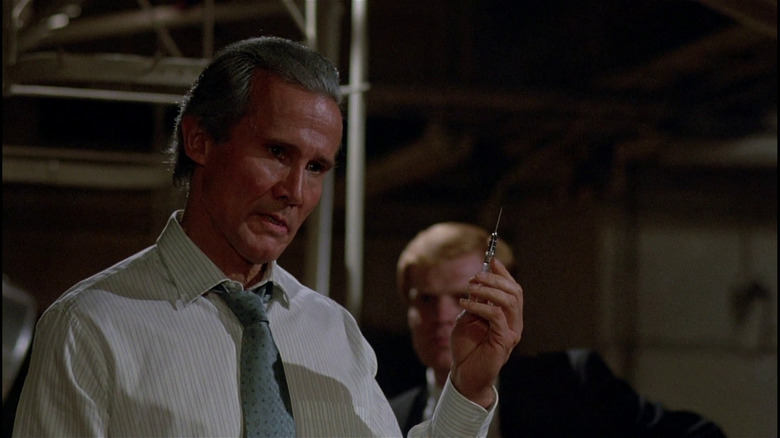Henry Silva, One Of Cinema's Ultimate Badasses, Has Passed Away
I have Quentin Tarantino to thank for my love of Henry Silva. Many, many moons ago, Tarantino would come to Austin and screen his personal collection of 16mm and 35mm prints of his favorite films, all to support the Austin Film Society. If it wasn't for seeing those obscure movies from the '50s, '60s, and '70s with Tarantino introducing them all, like the most excitable film professor ever, I probably wouldn't have discovered just how much of a badass Henry Silva was, most likely only recognizing him from the original "The Manchurian Candidate" or maybe as one of the villains in "Dick Tracy."
As we recognize his contribution to the cinematic arts in the wake of his passing at the nice old age of 94, it's probably best to state up front that Silva was a ruthless presence on-screen. He just looked like a killer and that inherent intimidating presence was the foundation for his massive career that spanned from 1950 all the way to 2001.
Being a bad motherf****r is the best kind of job security as an actor because movies always need good villains. He was a staple of Westerns and crime pictures until they went out of style, and then he transitioned into the gangster movies of the 1970s followed by the potpourri of genre films that dominated the '80s and early '90s. From comedic kids' movies to the most violent crime movies ever made, Silva was there.
From Sinatra to Seagal
Silva's most prestigious role was probably that of Chunjin in the original "Manchurian Candidate" from 1962. While problematic by today's standards, Silva's Sicilian and Spanish heritage gave him a unique enough look that he played a Korean houseboy who was secretly a Communist agent. This was one of his three on-screen appearances with Frank Sinatra. He had a small role in 1960's "Ocean's 11," and then appeared again with the entire Rat Pack in the Western "Sergeant's 3" in 1962.
While he was prolific in the 1950s and '60s, going up against big screen icons like Randolph Scott in "The Tall T" and Gregory Peck in "The Bravados," his real time to shine came in the 1970s when Hollywood underwent a radical change. The strict Hayes Code was dismantled, and audiences demanded more realism and violence from their motion pictures.
Some of the hottest movies to screen at drive-ins across the country were Italian crime movies, and one of the kids eating them all up was a young Quentin Tarantino. He shared that love with Austin audiences by screening his personal prints of "The Boss" and "The Italian Connection," both of which were directed by the great and undersung Fernando Di Leo.
It's as if Silva was born to be a hitman and both of those movies took full advantage of that, creating kind of proto-John Wick-type characters that you absolutely, positively, under no circumstances want to screw with, and if you do ... well, then you're gonna get what you deserve.
Gangsters and hitmen
These Italian crime movies were sexy, violent, brutal, and built to entertain rowdy crowds.
If you've ever been to an Alamo Drafthouse and have seen one of their funny "No Talking" PSAs taken from old movies, you may have seen a bit from "The Italian Connection" where Silva sits up in a projection booth as a bunch of mobsters watch a porno movie together (hey, it was the 1970s). He slowly loads what can best be described as a rifle that fires an RPG, and then blows the entire theater away.
That's the kind of ridiculous we're talking about, but it was part of one of the most bizarre and entertaining eras of cinema. Tarantino hints at the prevalence of Italian genre films in his own "Once Upon a Time in Hollywood" when Leonardo DiCaprio's Rick Dalton goes over to Italy and makes what feels like a half-dozen Westerns and crime films.
While Silva never made a cameo in "Once Upon a Time in Hollywood," it's a safe bet that Rick Dalton co-starred with him in at least one of those movies.
A dependable onscreen threat
As the 1970s gave way to the '80s, Silva was working more than ever, jumping from genre to genre, but always playing a tough bastard. He was tasked with hunting down the man-eating gator in "Alligator," went up against Steven Seagal in 1988's "Above the Law," and appeared beside Chuck Norris in "Code of Silence."
As he aged, he only became a more threatening presence on screen, and all that seemed to culminate when he played Influence in 1990's "Dick Tracy." The man already had a face that screamed evil henchman, and when you brought in that absurd, off-putting, and extremely cool makeup, the result was an imposing comic book villain for the ages.
Silva worked throughout the '90s in films that have mostly been lost to time, but he did have one final one-two punch in the late '90s and early aughts. He showed up in 1999's "Ghost Dog: The Way of the Samurai" and made a cameo as one of the last surviving cast members of "Ocean's 11" in the George Clooney 2001 remake "Ocean's Eleven."
Silva was a one-of-a-kind actor, and his passing will be mourned by cinephiles all over the world.



